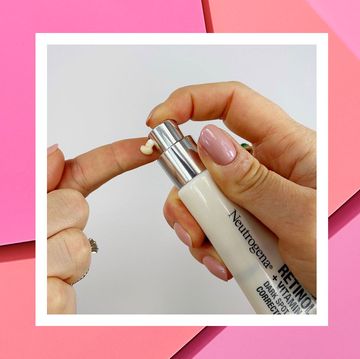You sail through Super Bowl parties every year without dipping a single chip and survive the annual Girl Scout cookie blitz. So why does one lousy fight with your boyfriend land you elbow-deep in a tub of mac 'n cheese? Maybe because a dieter's worst enemy isn't temptation; it's a really foul mood.
"Emotional eating is the number-one reason most diets fail," says Linda Spangle, R.N., M.A., a Denver-based weight-loss coach and the author of 100 Days of Weight Loss. Spangle estimates that up to 75 percent of her clients overeat because of how they feel. "They have a bad day and self-medicate with food," she says.
Researchers at the Miriam Hospital's Weight Control and Diabetes Research Center in Providence, Rhode Island, agree. In a 2007 study, they found that internal emotional triggers pose a larger obstacle to weight loss than external ones (e.g., eating more because dinner is served buffet-style).
Now there's physiological evidence to back up what you've always instinctively known: Women really are more prone to day-from-hell food fixes than men. In a study published earlier this year, researchers at the Brookhaven National Laboratory had normal-weight male and female volunteers fast for nearly 20 hours, then tempted them with their favorite foods. The volunteers were instructed to resist the food while imaging equipment took photos of their brain activity. The resulting scans showed that while all the volunteers could consciously suppress their hunger somewhat, the brain areas that regulate emotions and the motivation to eat were more active in the women than in the men.
So if we're able to will our hunger pangs into submission, why don't we? For one thing, because our emotional attachment to that box of doughnuts, unlike the one we have to Clive Owen, isn't all in our head—our emotions can in fact trigger physical hunger. "There's definitely a physical component to emotional eating," says Susan Kraus, R.D., a nutritionist at Hackensack University Medical Center. "The mood- and appetite-regulating chemicals in your brain like to stay in balance. So when you experience unpleasant emotions that throw off that balance, your brain will try to compensate."
When you have an evil day, your brain's production of serotonin (a neurotransmitter that keeps you from feeling anxious and depressed) can drop. Studies link low levels of serotonin in women to irritability and increased appetite. Further, research has shown that the things that cause low serotonin—including exhaustion, stress, PMS, and lack of sleep and sex—hit women harder than men because women start out with about 25 percent less of the chemical, according to Robert Posner, M.D., coauthor of Stress Eater Diet.
To maintain its proper levels, your brain issues an order for carbohydrates, which contain the amino acid tryptophan, a building block of serotonin. That's why, after spending an hour in traffic on the way home from work, you want to scarf a slice of pizza, not grilled chicken and steamed broccoli. When you do, your body pumps out more serotonin, which takes the edge off almost instantly—until your body finishes processing the carbs. Then comes the dreaded rebound, when your blood sugar plummets and you end up craving another slice.
Are you really hungry? Probably not, though it sure feels that way. In fact, the most common time to binge is after a meal, says Mary Boggiano, Ph.D., an associate professor of psychology at the University of Alabama at Birmingham who has studied overeating in rats. "Hunger is actually the least reported reason for overeating," she says. Low serotonin can also impair your ability to tell when you're full, making you more likely to eat when you don't really need to as well as more prone to overeating.
What's more, if you do tend to eat for comfort, being low on serotonin will probably make it harder for you to resist the foods you love. That's because dwindling levels have been linked to an increased sensitivity to reward. Translation: "Emotional eaters eat not only to reduce stress but also because it feels so much better than what they're going through," Boggiano says. Add brain chemistry to the emotional associations formed throughout life—like getting a lollipop every time you scraped your knee—and it's no wonder you feel helpless to resist that carton of Rocky Road.
"It takes time, but you can change the way you react," says Linda Hlivka, a clinical nutritionist and Posner's co-author on Stress Eater Diet. And that doesn't mean you can never treat yourself. "If you decide you want to relax with a few cookies and can stop at three, that's probably not emotional eating," Hlivka says. "When it becomes your go-to stress-reduction strategy—like, 10 times a day—it's a problem."













